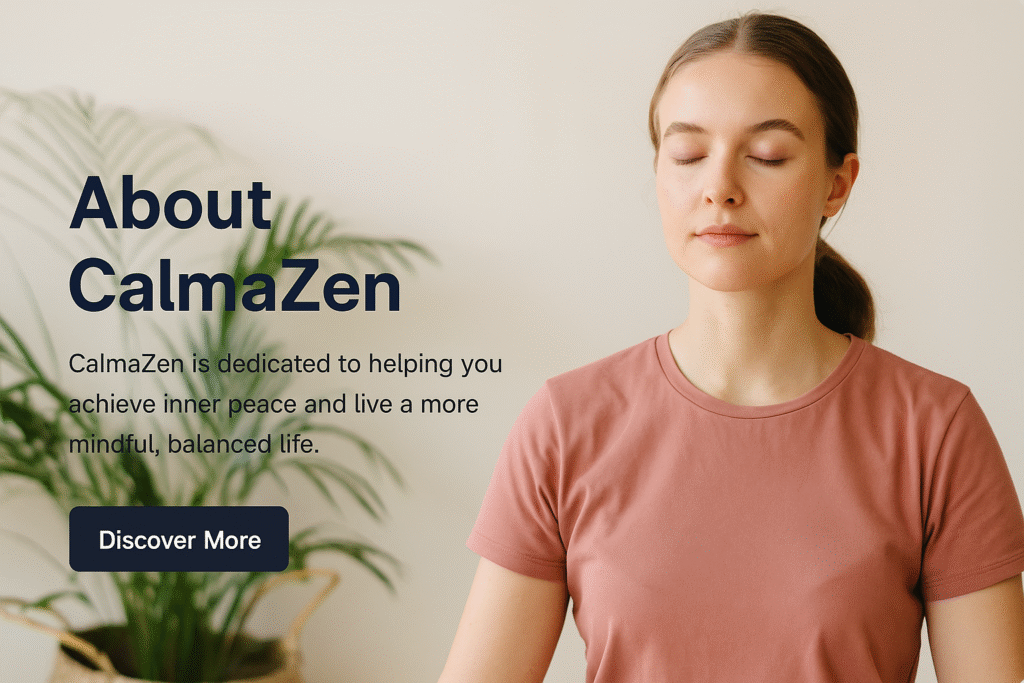Find Your Inner Calm
Discover guides, tips, and practices for a more mindful and balanced life.
Welcome to CalmaZen
At CalmaZen, we believe that inner peace and mindfulness are the foundations of a fulfilling life. Here you’ll find guides, resources, and inspiration to embrace a calmer, more meaningful journey every day.
Latest from the Blog
Explore our latest insights and tips to help you live a calmer, more mindful life.
Mindfulness
Cultivate present moment awareness to live with greater peace and clarity every day.
Meditation
Discover meditation practices to calm the mind, reduce stress, and deepen self-connection.
Healthy Habits
Build simple, sustainable habits that support your physical, mental, and emotional well-being.
Sleep and Relaxation
Improve your sleep quality and relax more deeply with mindful strategies and routines.
Stress Management
Learn practical tools to manage stress, restore balance, and find calm in everyday life.

About CalmaZen
At CalmaZen, we believe that true well-being begins within. Our mission is to provide you with practical tools, mindful strategies, and inspiring resources to cultivate peace, balance, and happiness in your everyday life.
Through our expert guides, wellness practices, and a supportive community, we aim to empower you to live more mindfully, reduce stress, and reconnect with your authentic self.
Start your journey towards a calmer, more meaningful life today with CalmaZen.
CalmaZen
Your space to reconnect, recharge, and live mindfully every day.
Inspiring your journey toward inner peace and well-being.
Quick Links
Connect
- X






